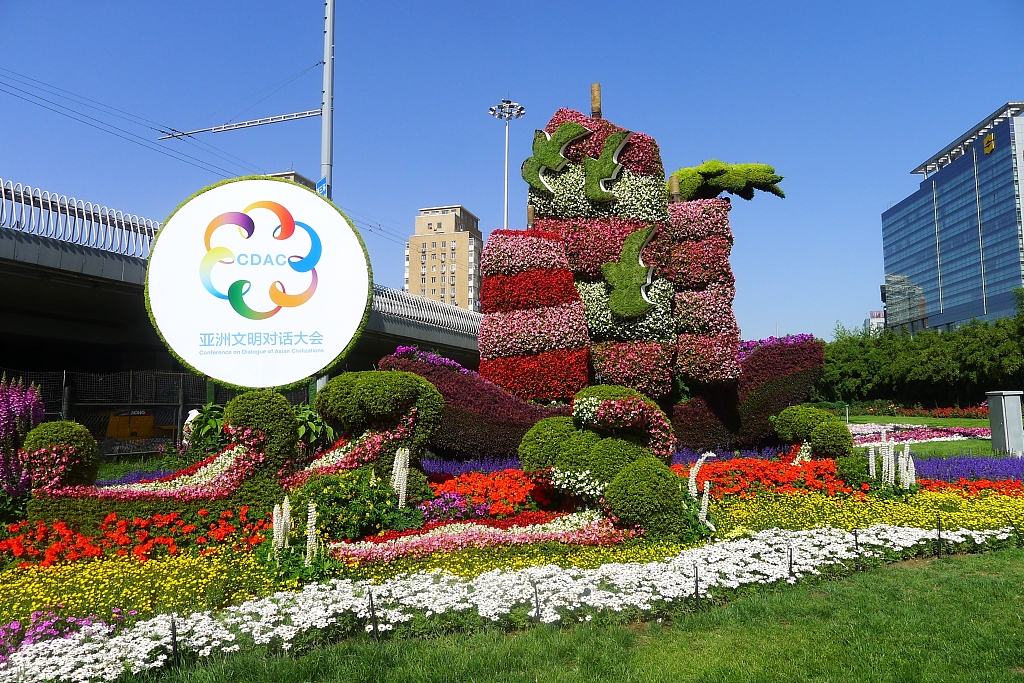Dialogue essential to overcome 'clash of civilizations'
- By Zhang Lulu
 0 Comment(s)
0 Comment(s) Print
Print E-mail China.org.cn, May 14, 2019
E-mail China.org.cn, May 14, 2019

In his famous essay "The Clash of Civilizations?" published in 1993, American political scientist Samuel P. Huntington wrote that the fundamental source of conflict in the post-Cold War world will be cultural: "The principal conflicts of global politics will occur between nations and groups of different civilizations. The clash of civilizations will dominate global politics. The fault lines between civilizations will be the battle lines of the future."
Almost three decades after the essay's publication, the world has indeed seen clashes, conflicts, and wars fought between different nation states, ethnic and religious groups. But the nature of this antagonism is subject to debate. Is it triggered by differences in civilization, as Huntington predicted, or motivated by geopolitical or economic gains? Huntington's thesis may be controversial, but the reality of such conflicts do point to the necessity of dialogue, negotiation and compromise.
This forms the backdrop to China's inaugural Conference on Dialogue of Asian Civilizations, which will be held later this week. State leaders, officials of international organizations and representatives from cultural fields will gather in Beijing to discuss issues like governance, cultural diversity, people-to-people exchange and others.
At the Conference on Interaction and Confidence Building Measures in Asia, held in Shanghai in 2014 and the 2015 Boao Forum (BFA) for Asia, Chinese President Xi Jinping twice advocated for the convening of the CDAC, and received positive responses from the participating countries.
In his BFA keynote speech, Xi invoked ancient Chinese philosopher Mencius's adage that "Things are born to be different." Therefore, he argued, "inclusiveness and mutual learning among civilizations" are needed to build a community with a shared future for humanity.
Indeed, apart from sharing universal pursuits of peace, prosperity and love, the world is composed of different countries and groups of various sizes, economic scales, political systems and cultural makeup. We recognize and celebrate these differences because these make the world what it is now and make us who we are today.
But differences do not have to mean antagonism, nor do we need to build a modern Tower of Babel. Rather, we need, as Xi said in his speech, to embrace inclusiveness and learn from each other.
Chinese people take pride in the country's centuries-old civilization, but the Chinese civilization did not grow entirely on its own. Rather, it has learned from civilizations and cultures from other parts of the world. For example, Buddhism, which is practiced by millions of people in China, originated in India and later developed Chinese branches.
In recent decades, especially after China began opening up to the world, the cultural interaction between China and other countries has become more frequent than ever. The most noticeable area is arguably in popular culture.
One South Korean TV drama centering on family and friendship that aired four years ago gained great popularity and moved many people in China, myself included. The opening scene of the first episode depicts a group of South Korean teenagers in the late 1980s, who are eagerly watching a Hong Kong movie. Interestingly, nowadays it is the reverse: young people in China are crazy about South Korean culture.
And this is just one example of cultural exchange. Each country has its own distinct culture and civilization, but there are so many commonalities shared among them so that civilization transcends borders and binds people together.
Today, Asia is home to about 60 percent of the world's population and more than one-third of the global economy. The giant continent is prospering to where some have come to call this the "Asian Century." Despite that, Asia also faces many problems that need to be worked out, and the best way forward is to use solutions from every country within it and many others outside it.
Dialogue in itself is not the end -- let's hope it becomes the means to bring about wisdom to cope with the problems we are facing in Asia and the world at large.






Go to Forum >>0 Comment(s)